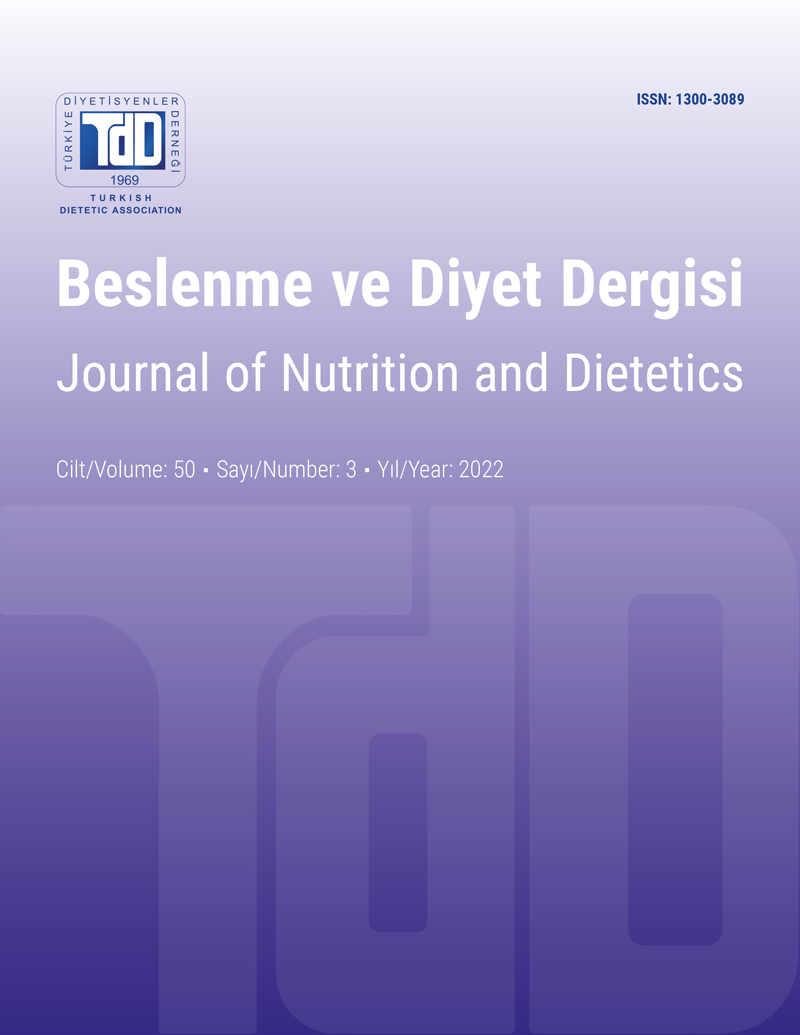Determination of the Relationship between Nutritional Status and The Dichotomous Thinking in Eating Disorders Scale (DTEDS) in Adult Women
DOI:
https://doi.org/10.33076/2022.BDD.1676Keywords:
Dichotomous thinking, eating disorders, obesity, nutritional habitsAbstract
Aim: Eating disorders are physiological disorders caused by eating behaviors and related thoughts. Dichotomous thinking which is a rigid cognitive thinking style has been associated with excessive eating and increased body weight. The aim of this study was to evaluate the relationship between the Dichotomous Thinking in Eating Disorders Scale (DTEDS) and nutritional status in overweight/obese adult women.
Subjects and Method: This observational study was conducted on January 2018- July 2019 in Ankara with 110(36.8±12.03 years) women who were overweight or obese according to their body mass index (BMI). A questionnaire examining descriptive and anthropometric information along with Eating Disorders Associated Eating Attitude Test (EAT-26), Yale Food Addiction Scale (YALE) and DTEDS were applied. The validity and reliability of the Turkish version of DTEDS were performed by the re-testing method.
Results: The Turkish version of DTEDS validity (coefficient = 0.075; t=0.940, p = 0.355) and reliability (cronbach’s alpha = 0.808) were appropriate. The average BMI was 30.34±4.8 kg/m2. There was a negative correlation between BMI and YALE (p<0.05). According to DTEDS, 55.8% of the overweight women and 44.2% of the obese women had a higher risk of dichotomous thinking and related eating disorder. Ice cream, chocolate, fried dough and dessert, donut, rice, crackers, salted pretzels, cookies, cake-bakery, confectionery, pizza, soda, steak, bacon, banana consumption may be associated with eating disorders (p<0.05). Relationships between the exercise type and DTEDS, EAT-26 scores and between regular exercise and YALE, EAT-26 scores were detected (p<0.05).
Conclusion: In conclusion, the Turkish version of DTEDS was valid and reliable. DTEDS can be used in studies examining eating disorders and obesity related eating behaviors. This study showed that dichotomous thinking may be associated with BMI in overweight/obese women and eating disorders may lead to a higher consumption of foods high in energy/sugar/fat.

